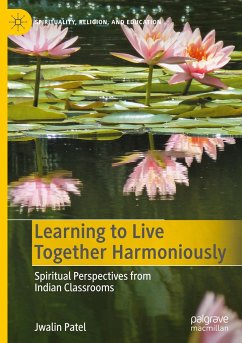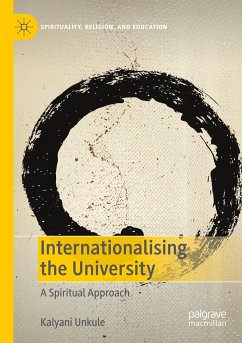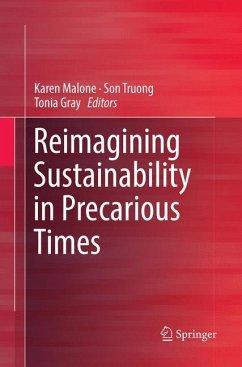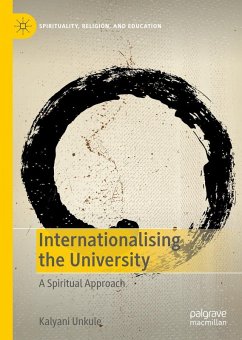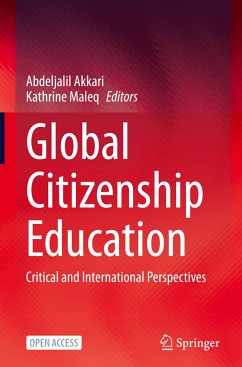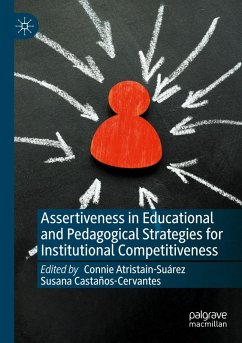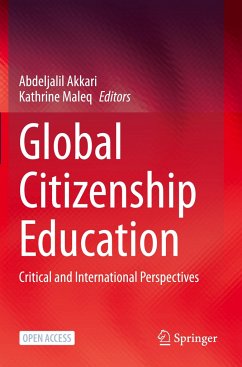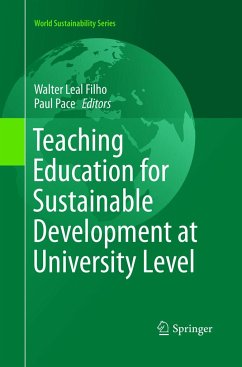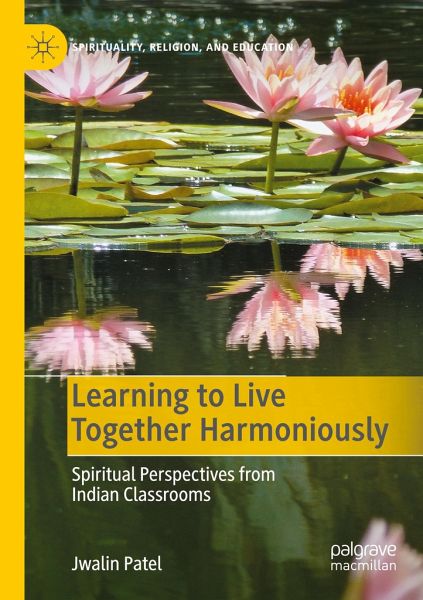
Learning to Live Together Harmoniously
Spiritual Perspectives from Indian Classrooms
Versandkostenfrei!
Versandfertig in 6-10 Tagen
76,99 €
inkl. MwSt.
Weitere Ausgaben:

PAYBACK Punkte
38 °P sammeln!
This book calls for an expanded vision of holistic education that emphasizes togetherness and harmony through the discovery of oneself, others, and the larger society. It brings together teachers' voices, experiences, and practices for such an education with Southern Knowledge, philosophy and ideologies proposed by Indian philosophers and spiritual leaders like Aurobindo, the Dalai Lama, Gandhi, Krishnamurti, and Tagore. The book reconceptualizes and extends UNESCO's "Learning To Live Together" to emphasize "Learning to Live Together Harmoniously" (LTLTH) and develops a novel conceptual framew...
This book calls for an expanded vision of holistic education that emphasizes togetherness and harmony through the discovery of oneself, others, and the larger society. It brings together teachers' voices, experiences, and practices for such an education with Southern Knowledge, philosophy and ideologies proposed by Indian philosophers and spiritual leaders like Aurobindo, the Dalai Lama, Gandhi, Krishnamurti, and Tagore. The book reconceptualizes and extends UNESCO's "Learning To Live Together" to emphasize "Learning to Live Together Harmoniously" (LTLTH) and develops a novel conceptual framework for it. The book also explores how LTLTH can be translated into practice; calling for a continuum of harmonious lived experiences created through experiential and project based pedagogy, systems and processes for autonomy and autonomous behaviour regulation, empathetic teacher student relations, schoolwide ethos of harmonious living, and teachers' ways of living and being.



